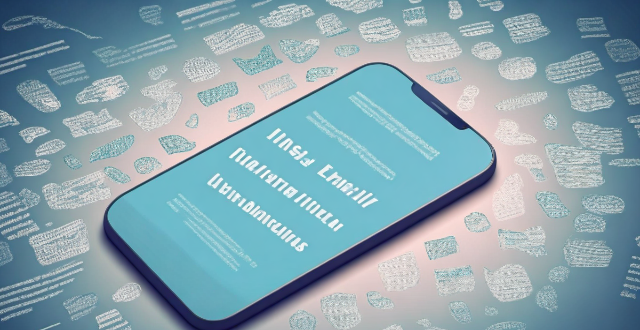Encryption is a key tool in protecting mobile phone privacy by converting plain text into an unreadable format. It secures data at rest, in transit, and within apps, aids in user authentication, enables remote wipe, supports Secure Boot, and allows file encryption. Overall, encryption creates a secure environment to safeguard personal information from unauthorized access.

How Encryption Helps with Mobile Phone Privacy Protection
Encryption is a crucial tool for protecting mobile phone privacy. It works by converting plain text into an unreadable format, making it difficult for unauthorized users to access sensitive information. Here's how encryption helps with mobile phone privacy protection:
1. Data at Rest
When data is stored on your device, it can be vulnerable to physical theft or loss. Encryption ensures that even if someone gains access to your device, they cannot read the data without the decryption key. This includes:
- Personal photos and videos
- Sensitive documents
- Passwords and login credentials
- Banking and financial information
2. Data in Transit
Whenever you send or receive data over a network, such as browsing the internet or using messaging apps, there's a risk of interception by hackers or malicious actors. Encryption protects this data in transit by ensuring that only the intended recipient can decrypt and read it. Examples include:
- Emails
- Text messages
- Voice calls
- Social media interactions
3. App Data
Many apps store sensitive information on your device or in the cloud. Encryption ensures that this data remains private and secure, even if the app itself is compromised. This includes:
- Health and fitness data
- Location tracking
- Personal communication records
- User preferences and settings
4. User Authentication
Encryption also plays a role in user authentication, such as locking your device with a password or biometric data. This prevents unauthorized access to your device and the sensitive information it contains.
5. Remote Wipe
In case your device is lost or stolen, encryption allows you to perform a remote wipe, erasing all data from the device without physically having it in your possession. This ensures that your private information doesn't fall into the wrong hands.
6. Secure Boot
Some devices use encryption to ensure that only trusted software runs on your device. This process, called Secure Boot, verifies the integrity of the operating system and prevents unauthorized code from running, further protecting your privacy.
7. File Encryption
You can encrypt individual files or folders on your device, adding an extra layer of protection for particularly sensitive information. This way, even if someone gains access to your device, they won't be able to read the encrypted files without the decryption key.
Conclusion
Encryption is a powerful tool for safeguarding mobile phone privacy. By encrypting data at rest, in transit, within apps, and during user authentication processes, encryption helps create a secure environment where your personal information remains private and protected from prying eyes.